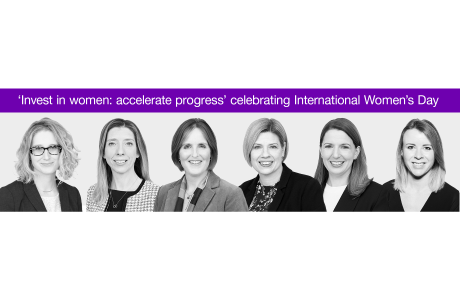
At a tipping point
2018 could be a crucial year for the London Market, says Justin Balcombe, Partner and Managing Director at Boston Consulting Group.
This year will be an important one for the London Market, when a number of trends are likely to converge. It has a fantastic opportunity to stake its claim to be the global underwriting centre of technical excellence for the future, but first it needs to consider if the way it operates today is fit for tomorrow.
I expect to see some interesting partnerships and alliances between insurers and companies in other sectors, to help insurers to innovate, change and move closer to their customer – whether that’s a broker or policyholder. Insurers will realise that they can’t do everything they need to transform and innovate their businesses on their own, and these new partnerships will help insurers to think, act and operate differently.
A number of insurers have recently announced partnerships with tech firms that could rethink the art of underwriting.
A number of these partnerships already exist, such as in claims, where insurers are working with technology firms to help innovate and improve the process. Drones are being used to help insurers quantify damage after an event, while telematics are now embedded in structures to provide data and analytics before a loss occurs. Many insurers are also looking into how robotics, blockchain-enabled ‘smart contracts’ and artificial intelligence (AI) can help improve data quality, speed up claims settlement, as well as to cut fraud and leakage.
The underwriting process is also being transformed through the use of this technology. A number of insurers have recently announced partnerships with tech firms that could rethink the art of underwriting while also improving the flow of business and reducing costs.
These technologies will help London insurers become much more responsive to requests during the negotiating process before risks are bound as well as enabling them to make more complex risk pricing decisions -- all of which will help them move closer to the end customer.
Mind the generation gap
London is also facing a generation gap. It is a deeply technical operating environment, with a significant number of good people working across it, but that competence is fast being replaced by technology. We won’t see an army of robots marching down Leadenhall Street to replace underwriters, but the market has to find a happy medium between technology and traditional working methods. It must increase the pace of change of modernisation otherwise it risks being left behind.
London needs to articulate a vision for the future that demonstrates what it would look like and how it would operate.
Risks are now converging to create much larger, complex and more dynamic events, and insurers need to be able to respond effectively to these fast-moving situations. The market needs people with the skills to deal with emerging risks, such as cyber, the changing terror threat or increasingly devastating natural disasters. This requires the market to go outside its traditional talent pools and attract people with different and emerging skill sets. London also needs to make itself more attractive so that it can retain new talent, which will help ensure the market’s future success and growth.
Companies need to urgently address that problem, by working with adjacent industries, universities or by tapping into pools of talent in other regions. The market needs to be able to articulate a vision for the future that demonstrates what London would look like and how it would operate assuming all the modernisation projects were realised.
Turning the industry
The market can no longer trade its way out of change, nor rely on levers such as cutting expense or increasing premium. It has to consider far more integrated activities, sequenced in a way that delivers value and growth, while balancing the needs of interested parties and supply chains.
It’s critical for insurers to turn away from their legacy operating models, embrace the challenge and point their businesses in a new direction to develop an effective strategy for the future.



